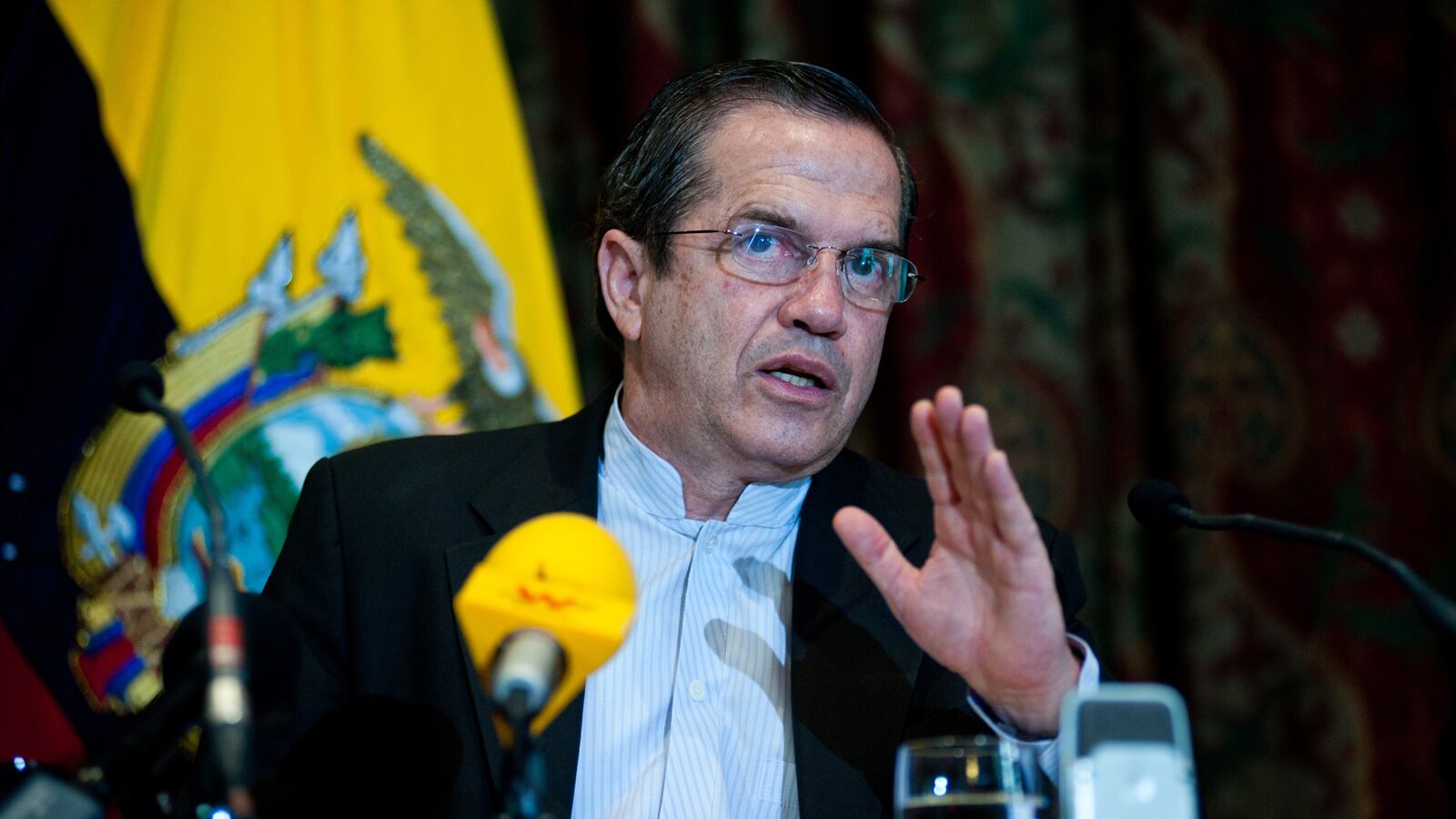Quito, the capital of Ecuador, is not exactly on the Elizabeth Arden circuit for the leisure, jet-setting crowd. But for the globally notorious on the lam, it is shaping up to be an attractive getaway.

Julian Assange, the head of the whistleblower group WikiLeaks, won political asylum in the Andean nation last year after taking refuge in the Ecuadoran Embassy in London. Facing charges of sexual abuse in Sweden and hunted by the British police, Assange may never get beyond the embassy in Hyde Park, but he was hailed as a "champion" of free expression by Ecuadoran President Rafael Correa, who bade him "welcome the club of the persecuted."
Now comes Edward Snowden, the former National Security Agency contract analyst who is wanted in the United States for leaking details of America's surveillance programs and then fleeing the country. Ecuador may not have been the 30-year-old digital rebel's dream destination. He fled first to Hong Kong, flew on to Russia, and was last sighted wandering the transit lounge of an airport in Moscow.
But with Washington on his heels, his passport revoked, and a small diplomatic brawl erupting around him, Snowden must have seen the small, impoverished country straddling the Amazon and the Andes as a haven.
The Ecuadoran foreign minister, Ricardo Patiño, confirmed that Snowden has sent a formal petition for asylum, in which the fugitive security analyst argued that it is "unlikely that I will have a fair trial or humane treatment" if he is extradited to the U.S. "Rest assured that we will analyze the Snowden case very responsibly and we will make with absolute sovereignty the decision that we believe is most appropriate," Correa quickly fired back, on Twitter.
Whether he will end up in Ecuador is another matter, never mind how he would fare in the politically hypercharged nation, where under the increasingly autocratic style of Correa, whistleblowers are no more welcome than are yanqui imperialists.
Like Assange, Snowden is a tempting piece on the Ecuadoran caudillo's geopolitical game board. All the more since the death in March of Venezuelan strongman Hugo Chávez, the leading evangelist for the so-called Bolívarian Revolution, a heady mix of authoritarian populism with self-styled "21st century" socialism. From election in 1999 to practically his deathbed, Chavez rarely missed an opportunity to tongue-lash the imperial menace, even as he freely sold oil to the Americans.
Though many of Venezuela's allies in the Bolívarian compact share Chávez’s bilious view of Washington, his death from cancer left the cause without its gringo irritator in chief. Correa has the oil, attitude, and oratorical flare to fill the role. His gesture to Assange—and now to Snowden—seems calculated to up the ante. Tilting his beret to Snowden "is a great chance for Correa to needle the U.S. and to show consistency with his stance in the Assange case," says Michael Shifter, the president of the Inter-American Dialogue, a policy think tank. "That's Correa's style. He enjoys fights."
But if Correa has the provocateur's teeth, it's unclear whether he has the stomach for the part. More than needling the hemsipheric hegemon, Correa could be risking potentially damaging blowback—and not only from the White House—by offering an umbrella to Snowden.
The U.S. Congress is scheduled to vote next month on whether to extend trade preferences to Ecuador, through which many goods from the Andean nation enter the American market tariff-free. The U.S. is one of Ecuador's largest customers, buying cut flowers, asparagus, minerals, and Pacific tuna fish. Trade analysts reckon sales of such goods generate 400,000 jobs in Ecuador. "Correa will have to gauge his decision very carefully," says Shifter.
So will Snowden. It seems incongruous that such a self-styled truth teller should wager his liberty on a godfather like Correa. On June 5 the Ecuadoran Parliament, where Correa enjoys a chokehold, passed a sweeping new communications law that tightens the already formidable official tourniquet on the national press.
Among its 119 articles—passed in a summary session, with no debate—the law criminalizes practices such as "media lynching," vaguely defined as "the dissemination of concerted and reiterative information" with the purpose of "undermining the prestige” of a person or legal entity or “reducing [their] credibility.”
An official oversight body, to be headed by a presidential appointee, has the power to fine or sue journalists for perceived excesses. The law also orders the breakup of the predominantly privately owned Ecuadoran media, redistributing a third of radio and television broadcast concessions to state control and another third to "community" groups.
Human Rights Watch branded the communications law an "assault" on free expression.
"This law is yet another effort by President Correa to go after the independent media,” said José Miguel Vivanco, Americas director of the watchdog group. “The provisions for censorship and criminal prosecutions of journalists are clear attempts to silence criticism.”
None of this is news to Emilio Palacio. A former top editor at El Universo, an independent Guayaquil daily, Palacio incurred Correa's wrath when he criticized the Ecuadoran president in an editorial in 2011. Correa answered with a multimillion-dollar lawsuit, and after a lightning trial, Palacio was sentenced to three years’ confinement.
Correa, under international pressure, later pardoned Palacio, but the veteran journalist was unconvinced. In what should be a cautionary tale for whistleblowers like Assange and Snowden, Palacio fled to Miami, where he petitioned for and won asylum in the U.S.
For his part, Palacio is skeptical of whether Correa will grant Snowden a haven in Ecuador. "When he was elected, Correa told us he was neither on the political right or the left. He had no ideology," Palacio said in a phone interview. At the same time, the Ecuadoran leader "is aware that 21st-century socialism is in crisis" and that China, a growing economic influence in the region, is slowing down.
"Correa has been discreetly making gestures to come closer to Western powers," Palacio says. "Harboring Snowden will not help him."






